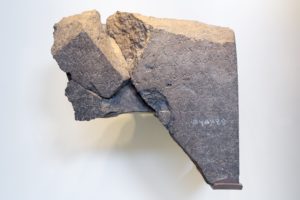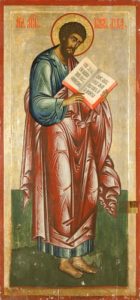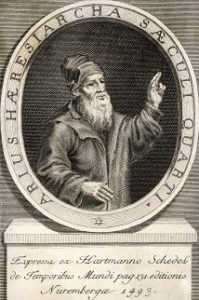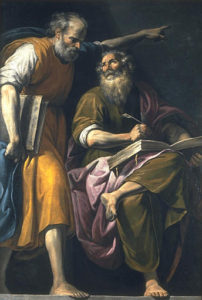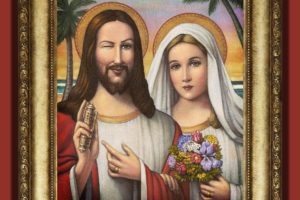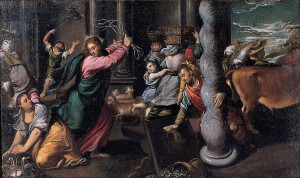Because of the fantastic story of his rise to power—and the lack of corroborating archaeological evidence—many historians and critics doubted the existence of king David and his reign in the 10th century BC. The prevailing academic theory became that he was just a mythological hero, much like King Arthur. Continue reading
Author Archives: Craig Dunkley
The “Busted” Series Links Page
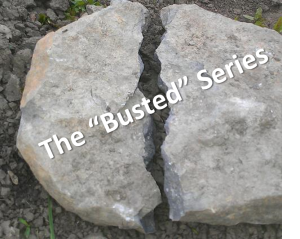 Recently a Logic & Light reader asked if there was one place from which they could access the entire “Busted” article series. In response to that request, we pulled together this page. It provides links to all 14 articles in the series.
Recently a Logic & Light reader asked if there was one place from which they could access the entire “Busted” article series. In response to that request, we pulled together this page. It provides links to all 14 articles in the series.
For those who aren’t familiar with this series, here’s a quick overview. Critics are fond of saying that the Gospels are full of obvious errors that render them unreliable as historical documents. They ask, “If Luke (or John or Matthew or Mark) can’t get their basic facts straight, then how can we rely on them for huge claims like Jesus’ resurrection?” Continue reading
Who Wrote the Gospel According to Luke?
The question, “Who wrote the gospels?” is an important one. Church history and tradition—and many modern scholars—assert that the four gospels were written by eyewitnesses to Jesus’ ministry, death, and resurrection (Matthew and John) or by individuals with direct access to eyewitnesses (Mark and Luke). If they are correct, then the gospels are eyewitness testimony, and the idea that they transmit accurate historical accounts is strengthened.
Many critics, however, dispute the traditional authorship of the gospels. They cite a number of reasons for this, which we have been addressing through a series of articles on gospel authorship. Continue reading
Know Your Heresies
Many critics like to claim that the Christian faith we know today is not the earliest form of Christianity. Instead, they say there were many competing versions of Christianity in the first century—often with wildly diverging beliefs about God, Jesus, and salvation—that were all vying for supremacy. Over the centuries, the narrative goes, “orthodox” Christianity was the most aggressive form, suppressing all other forms and crowding them out. Therefore, they conclude, the Christian faith we know today is invalid. It just happened to be the “winner” among competing mythologies simply because its adherents were more aggressive, ruthless, and shrewd than those who followed other “Christianities.”
Three Points on Orthodoxy and Heresy
To put it simply, the narrative above is incorrect. Those who propagate it display an ignorance of history, an unwillingness to accept evidence, or a combination of both. When honestly assessing the history of Christianity, a few points become very clear: Continue reading
20 Groundbreaking Scientists with Belief in God
You don’t have to search too hard on the internet to find people parroting the tired old refrain that religion—and in particular, Christianity—is responsible for all sorts of ills. It’s blamed for everything from bigotry and closed-mindedness to war.
We’ll address the baseless claims above in future articles, but today we want to focus on another claim that gets quite a bit of play: Religion (especially Christianity) has historically stifled scientific advancement and if it weren’t for religion getting in the way, then we’d be out exploring the galaxy by now, cancer would be cured, and so on.
For anyone who’s studied the facts, the claim above displays a stunning ignorance of history, as well as an inability to think critically. After all, it was the belief that God created an ordered universe operating according to natural laws that helped give birth to modern science in the West in the first place. Continue reading
NT Textual Variations and Why They’re Not a Big Deal
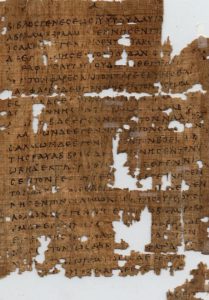
Fragment of the Gospel According to Matthew (original autograph: ~60-70 A.D.); This is a copy dating to ~250 A.D. (Wikimedia Commons)
In a 2013 article entitled, Is the New Testament Text Reliable?, Greg Koukl tacked the old assertion that the New Testament has been copied and recopied so many times over the ages that today, we can’t even know what the original texts said. To kick off that article, Koukl used a great example of how this meme continues to be perpetuated:
In the spring of 1989 syndicated talk show host Larry King interviewed Shirley MacLaine on the New Age. When a Christian caller contested her view with an appeal to the New Testament, MacLaine brushed him off with the objection that the Bible has been changed and translated so many times over the last 2000 years that it’s impossible to have any confidence in its accuracy. King was quick to endorse her “facts.” “Everyone knows that,” he grunted.
Who Wrote the Gospel of Mark?
The Christian church teaches that the gospels of Matthew, Mark, Luke, and John are accurate historical accounts of the teachings, death, and resurrection of Jesus. According to the church, these documents were written by direct eyewitnesses to the events recorded, or by people who captured the first-hand testimony of eyewitnesses.
Some argue that the gospels are not eyewitness accounts, but were instead compiled by anonymous editors several generations after the fact. However, significant evidence favors the church’s point of view. In this article, we explore the evidence for Mark’s gospel.
Who Was Mark and When Did He Write?
Finally Burying the Gospel of Jesus’ Wife
This article is about a topic that barely deserves to be addressed (but unfortunately needs to be): The so-called Gospel of Jesus’ Wife. For years, some anti-Christian conspiracy theorists have pushed the idea that Jesus was married, that the canonical gospels tell a fabricated story, and that the “truth” can be found in various “lost” gospels (such as the Gnostic “gospels”). Well, let’s explore the real truth. Continue reading
Contradictions (7): Cleansing the Temple
The gospels relate a key event in which Jesus cleansed the Jewish temple in Jerusalem, kicking out the money changers and merchants who he felt were defiling that sacred place. In the synoptic gospels (Matthew 21, Mark 11, and Luke 19), this event is portrayed as taking place at the end of Jesus’ ministry, shortly before his crucifixion.
However, John’s gospel (chapter 2) tells us that this event took place at the beginning of Jesus’ ministry. Critics cite this as an example of contradiction between the gospels, and assert that it demonstrates the gospels’ unreliability as historical documents. Continue reading
Busted (14): Mark’s “Error” Regarding Jewish Handwashing Rituals
 Critics are fond of claiming that the gospels are full of historical errors, and that they are therefore unreliable as historical documents. Today’s article focuses on an alleged error in Mark’s gospel. Let’s get started by allowing biblical scholar, Bart Ehrman, to enlighten us regarding Mark’s ineptitude as an historian:
Critics are fond of claiming that the gospels are full of historical errors, and that they are therefore unreliable as historical documents. Today’s article focuses on an alleged error in Mark’s gospel. Let’s get started by allowing biblical scholar, Bart Ehrman, to enlighten us regarding Mark’s ineptitude as an historian:
Mark 7:3 indicates that the Pharisees ‘and all the Jews’ washed their hands before eating, so as to observe ‘the tradition of the elders.’ This is not true: most Jews did not engage in this ritual.1

